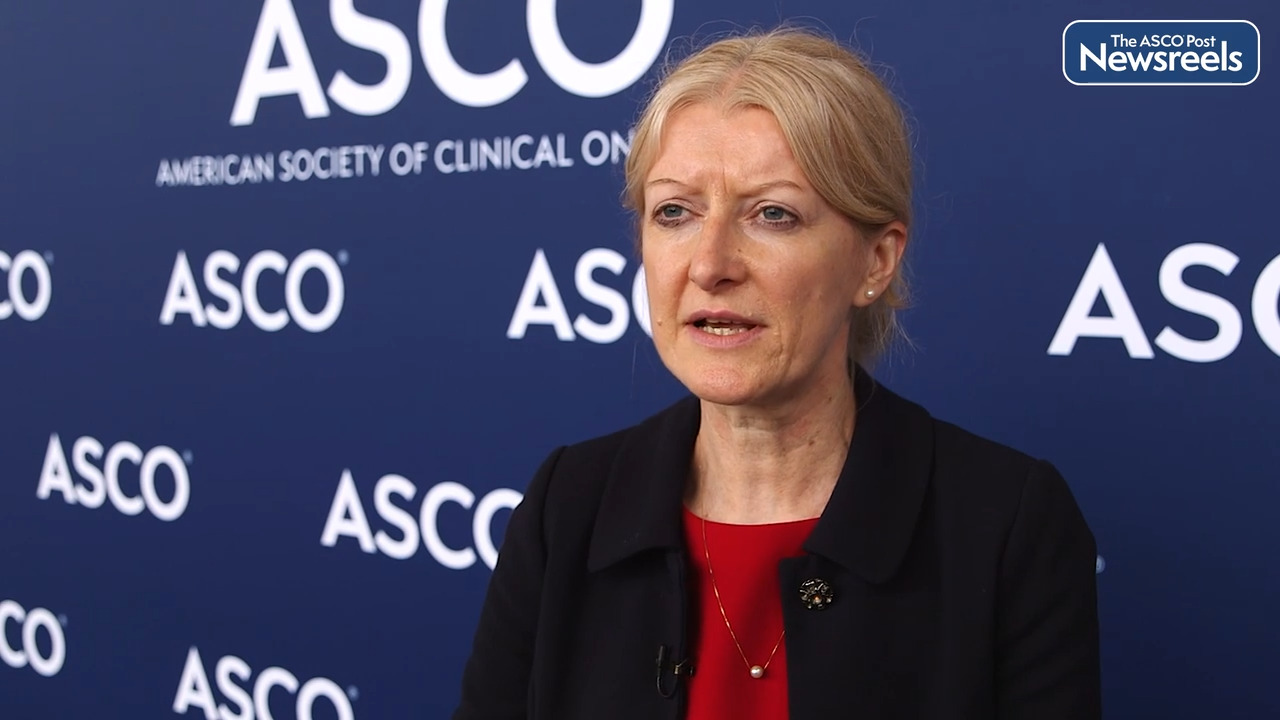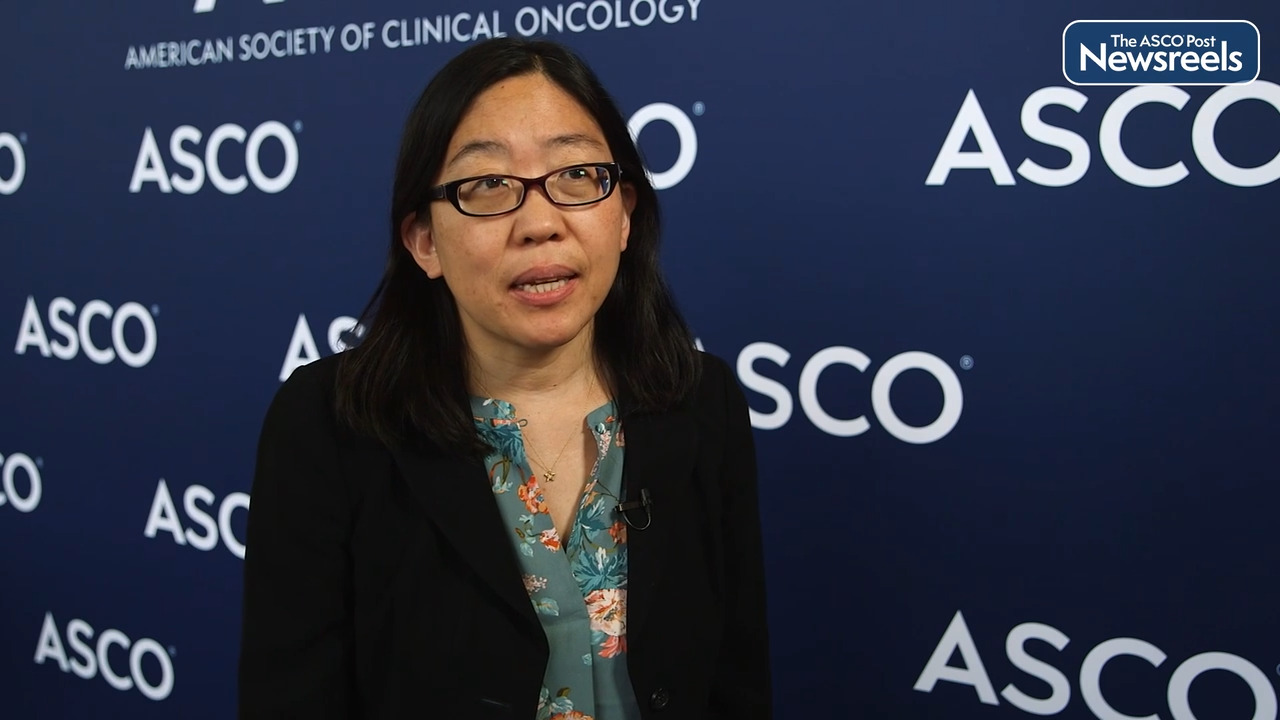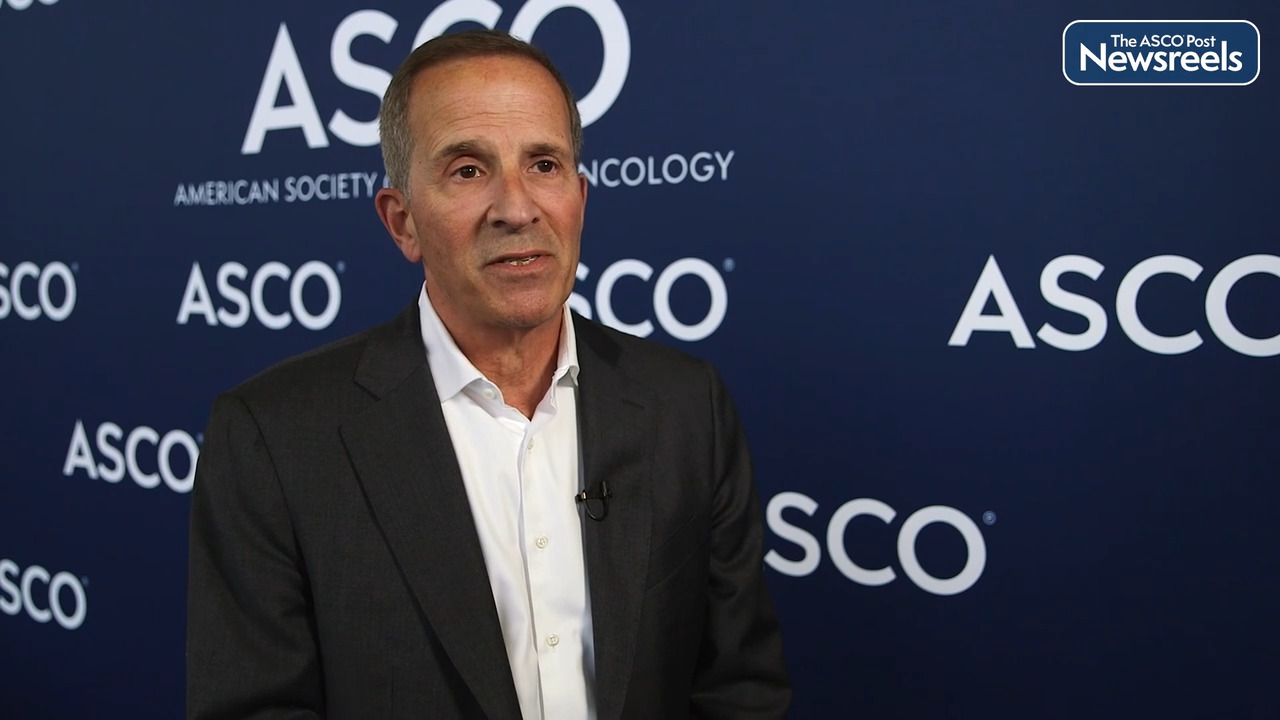Etienne Brain, MD, PhD, on Breast Cancer: Adjuvant Endocrine Therapy With or Without Chemotherapy in Older Patients
2022 ASCO Annual Meeting
Etienne Brain, MD, PhD, of the Institut Curie, discusses phase III findings from the Unicancer ASTER 70s trial, in which patients aged 70 or older with estrogen receptor–positive, HER2-negative breast cancer and a high genomic grade index received adjuvant endocrine therapy with or without chemotherapy. The data did not find a statistically significant overall survival benefit with this treatment after surgery (Abstract 500).
Transcript
Disclaimer: This video transcript has not been proofread or edited and may contain errors.
ASTER 70s study is a landmark study, which has been conducted in older women with luminal breast cancer in adjuvant setting questioning the addition of chemotherapy to endocrine treatment. The rationale behind is that the literature is very limited in terms of data published for the use of adjuvant chemotherapy in this situation in older ones. Multimorbidity competes with cancer on outcome and therapeutic ratio is also more narrow because there are higher risk of side effects in this population.
This trial screened near 2000 patients with the genomic grade index, the GGI, to assess the aggressivity of the disease and to spare the burden of chemotherapy in those patients with low-GGI tumor, while those with a high-GGI tumor were randomized between endocrine treatment alone as a standard arm versus chemotherapy followed by endocrine treatment. Near 2000 patients enrolled, 1,100 randomized between the two arms.
This trial shows, on the primary endpoint, which was overall survival by intent-to-treat analysis, that chemotherapy doesn't add a significant benefit in addition to endocrine treatment. That's the first message of caution from this study. Second one is that we can look at different subgroups and perform also the analysis according to the per protocol concept. This modifies or brings a nuance in the results, but I would say that the final potential benefit on overall survival in this case remains marginal. And in this population of older women, it is a key point and a double cautious message.
The next step for this study will be to try to improve the discriminative capacity of this kind of signature to identify those who could benefit still from chemotherapy, despite these global message and results on overall survival. This will be certainly possible with the use of the mass and the volume of data which has been collected in the randomized groups in this study, because there was a longitudinal collection of geriatric data, quality of life data, and treatment acceptability socioeconomic data, which will be very helpful to modelize differently, the prognosis of these ladies.
That's in the near future, and I think what brings the most in terms of information ASTER 70s, is that on the provisor that you change a bit of rules for inclusion criteria, because in this study we had very flexible inclusion criteria, we made a focus on quality of life and we use a single informed consent for screening and randomization, on the provisor that you facilitate or you simplify the processes, you can run large studies in a vast population, which is very often not considered for clinical trials left behind.
Related Videos
The ASCO Post Staff
Bradley J. Monk, MD, of the University of Arizona College of Medicine and Creighton University School of Medicine, discusses phase III findings from the ATHENA–MONO (GOG-3020/ENGOT-ov45) trial. It showed that rucaparib as first-line maintenance treatment, following first-line platinum-based chemotherapy, improved progression-free survival in patients with ovarian cancer, irrespective of homologous recombination deficiency status (Abstract LBA5500).
The ASCO Post Staff
Mairéad G. McNamara, PhD, MBBCh, of The Christie NHS Foundation Trust, discusses phase II findings of the NET-02 trial, which explored an unmet need in the second-line treatment of patients with progressive, poorly differentiated extrapulmonary neuroendocrine carcinoma. In the trial, the combination of liposomal irinotecan, fluorouracil, and folinic acid, but not docetaxel, met the primary endpoint of 6-month progression-free survival rate (Abstract 4005).
The ASCO Post Staff
Timothy J. Whelan, MD, of McMaster University and Hamilton Health Sciences, discusses findings from the LUMINA study, which found that women aged 55 or older who had grade 1–2 T1N0 luminal A breast cancer following breast-conserving surgery and were treated with endocrine therapy alone had very low rates of local tumor recurrence at 5 years. These patients, the research suggests, may be able to forgo radiotherapy (Abstract LBA501).
The ASCO Post Staff
Sue S. Yom, MD, PhD, of the University of California, San Francisco, discusses a translational analysis from the NRG-HN002 study. This phase II trial established the feasibility of the tumor tissue–modified viral (TTMV) human papillomavirus DNA assay in clinical trial specimens. The goal is to use such an assay to measure tumor volume, levels of TTMV over the course of treatment, and the association of TTMV to treatment outcomes (Abstract 6006).
The ASCO Post Staff
Neal D. Shore, MD, of the Carolina Urologic Research Center, discusses his study findings, showing that germline genetic testing influenced care for patients with prostate cancer. Men whose genetic test was positive for a pathogenic germline variant received more recommendations for changes to follow-up and treatment, and for testing and counseling of relatives, than did patients with negative or uncertain test results (Abstract 10500).





